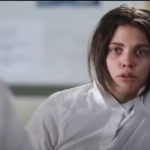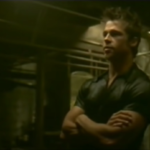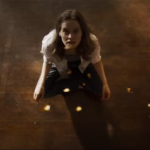Introduction: “Blue Car,” a film by Karen Moncrieff, is a poetic exploration of the delicate transition from childhood to adulthood, following the life of a young poet, Meg (Agnes Bruckner), as she grapples with family fragmentation and the search for connection through her writing. This drama, while often overlooked, offers a deep emotional resonance that merits a closer look.
Unveiling the Layers of “Blue Car”
The Power of Storytelling in Healing: “Blue Car” delves into how we use storytelling as a means to understand and heal from our traumas. Through Meg’s poetry, the audience is given a vehicle to navigate the complex emotions she deals with, as she faces neglect at home and finds solace in her attentive English teacher, Mr. Auster (David Strathairn).
Cast and Performances: The Soul of “Blue Car”
A Showcase of Emerging Talent: Agnes Bruckner’s portrayal of Meg is a revelation, encapsulating the raw, unfiltered essence of a teenage girl on the brink of self-discovery. David Strathairn complements this with a performance that is both compassionate and morally ambiguous, challenging the viewer to consider the fine line between mentorship and manipulation.
Direction with a Sensitive Touch
Navigating Adolescence and Vulnerability: Karen Moncrieff directs with a sensitivity that honors the complexity of her young protagonist’s journey. Her storytelling is intimate and deliberate, crafting a narrative that is both personal and universally relatable.
Themes that Transcend: The Universality of “Blue Car”
An Inclusive Approach to Personal Struggle: “Blue Car” reaches into the heart of themes such as loss, betrayal, and the hunger for affirmation. It addresses the universal longing for connection, speaking to audiences across diverse backgrounds and experiences.
Visual Storytelling: The Language Beyond Words
The Aesthetics of Emotion: The film’s cinematography mirrors the internal state of its characters, utilizing the cold, muted palette of a Midwestern winter to underscore the emotional desolation. The visual storytelling is subtle, yet powerful, enhancing the narrative’s poignant themes.
The Lasting Impact of “Blue Car”
Score: 4.3 out of 5 Stars “Blue Car” is awarded 4.3 out of 5 stars for its poignant portrayal of a young girl’s tumultuous journey toward self-actualization and the complexities of the roles played by those she encounters.
Concluding Reflections: “Blue Car” stands as a testament to the profound impact that art can have on processing and expressing emotional trauma. It’s a film that deserves a wider audience for its thoughtful exploration of the human condition and the fragile yet fierce spirit of its young protagonist. This cinematic gem, with its nuanced performances and careful direction, is a moving portrayal of the truths that often go unspoken but are deeply felt.
Trailer:






